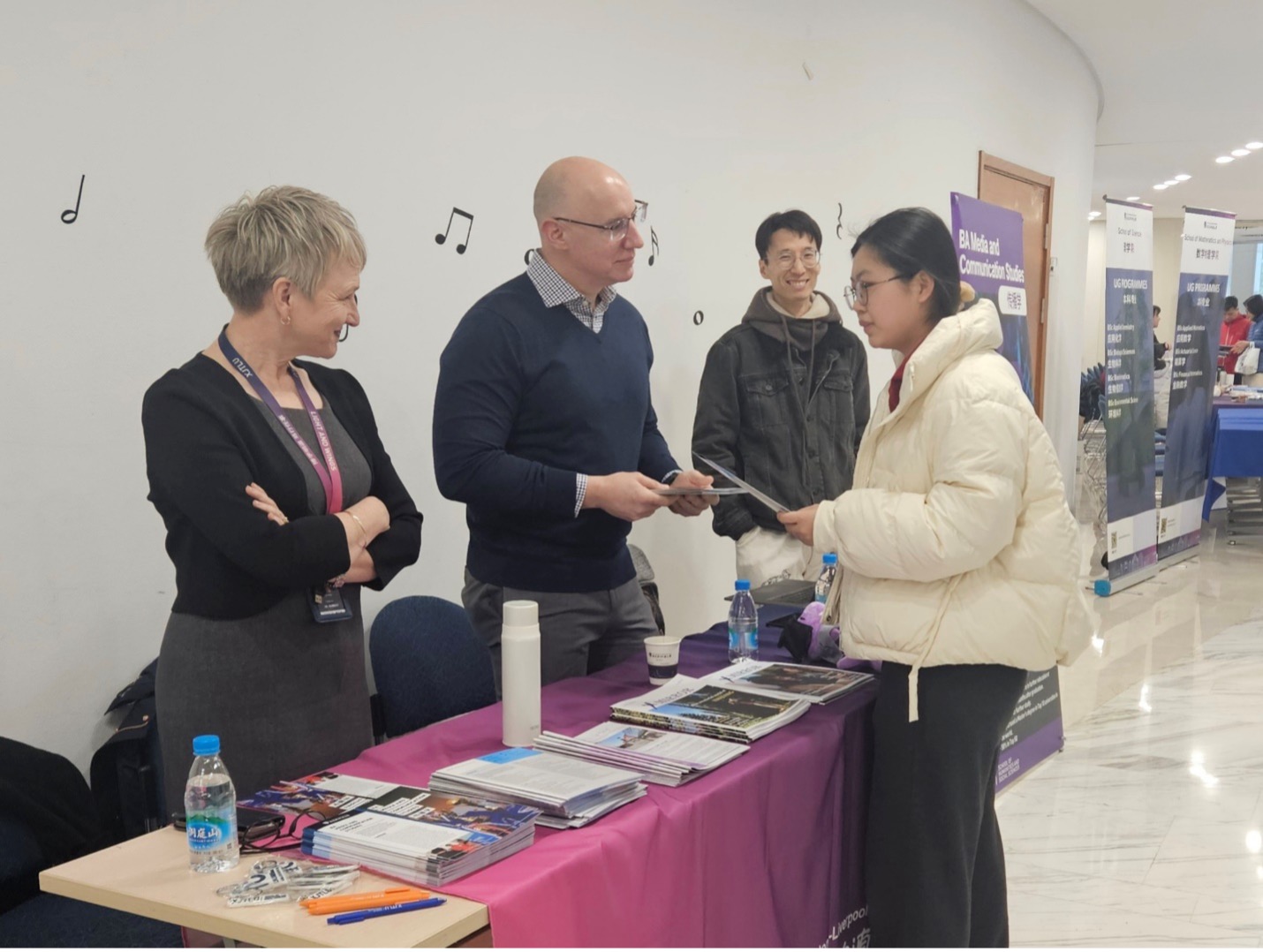09 May 2025
Students in the Department of Media and Communication will gain enhanced flexibility and new opportunities through updated academic programs.

All Smiles: A student receives personalised program information from faculty representatives of DMC at the March 15 academic fair on campus. Photo by Wanyi Cheng.
The Department of Media and Communication has made significant programme changes that give students more options for their academic journeys in both BA and MSc programmes. The new programmes also unveil some new offerings.
These adjustments, which will come into effect in the next academic year, are designed to give students greater flexibility while preserving core learning outcomes.
Undergraduate Programme changes
The BA programme has gone through modifications to provide students with more academic freedom. Dr Yanning Huang, the Programme Director (PD) of the undergraduate programme and a faculty member involved in the programme changes, explained that the three existing pathways – Journalism & PR, Film Studies, and Digital Media & Communication – will remain, but there will be a significant change to the course requirements.
Previously, students in Year 3 and Year 4 were required to complete all the mandatory modules belonging to the three pathways. Some students had indicated that certain required courses did not fully reflect their primary interests. As a result, the new programme will reduce mandatory modules to just one per semester in Years 3 and 4, especially Research Methods and the Final Year Project (FYP). All other modules will become optional, allowing students to personalise their studies.
Another key change involves swapping the levels of two Film Studies modules with Chinese Cinema, to be offered as a Year 3 module, while European Cinema moves to Year 4.
The rationale for this adjustment, Dr Huang explained, is that Chinese students comprise the majority of the student body, so it is more engaging for them to take a film studies module on the cinema they’re most familiar with, before they are introduced to film studies related to other parts of the world, such as Hollywood Cinema and European Cinema.
Later this semester, students will be asked to choose their Year 3, Semester 1 modules. Then, in the first week of Semester 1, they will have a taste of the modules, and the students choose other modules or drop some, said Dr Huang of the process that future Year 3 students are going to go through, in order to find the correct modules for them.
Master's Programme changes
Dr Qinning Wang, the PD of the MSc programme, outlined the new changes to the master’s curriculum. In the past, the programme offered two distinct pathways: Professional Communication and Global Media in China. However, feedback from students suggested a desire for greater flexibility in module selection. Dr Wang suggested: “We realised that maybe some of the modules in pathways were actually attractive to all students, and if we limited them in one pathway, then we actually limit their potential,”
The new programme will eliminate pathway restrictions, allowing students to choose modules based on their interests and career goals. To provide a more personalised learning experience, there will be three required modules: Media Theory in the Digital Age, Research Methods in Communication, and the Final Individual Project. These modules will continue to form the foundation of the programme.
Additionally, the MSc programme is introducing new modules, including Popular Culture and Fandom Studies, Documenting China: The Art of the Real, World Cinema, and Artificial Intelligence and Big Data in Society.
Dr Wang acknowledged potential challenges. Some students may struggle with choosing the right module, and faculty may need to adjust teachings for students with varying skill levels.
The changes in BA and Msc programmes are designed to give students greater flexibility while preserving core learning outcomes. These adjustments will come into effect in the next academic year.
Both Dr Qingning Wang and Dr Yanning Huang emphasise that programme changes are student-driven, aiming to be more flexible. Upon implementation, the programme's first year will be closely monitored, and faculty will be prepared to make adjustments as needed.
By VALERIA ALEJANDRA GALVAN SOTRES
09 May 2025








